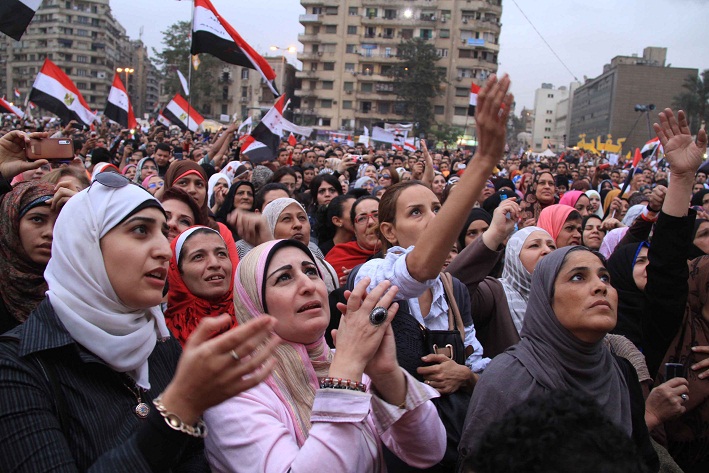Drums of war were beating in early June 1967 in the waning days of my internship at the American University of Beirut hospital. We were excited at the prospect of a just war that would liberate Palestine, allowing those of us who became refugees in 1948 to go back to our homes. We were also fully confident of victory against the small Israeli army. I distinctly remember a conversation I had in the cafeteria with professor of surgery, Dr. Abdel-Latif Yashruti, an urbane, British-trained aristocrat. His sharp blue eyes fixed on mine, he asked, “What makes you think that we will win? I began reciting the number of planes and tanks that Arab armies had in comparison to the puny numbers of the Israeli military. Calmly, he said “Look. I left Haifa once. I have lived in many places but I like it here. I don’t want to become a refugee again. My response – impolite, rash and most regrettable – questioned the patriotism and wisdom of my professor. In the ensuing years, I have come to recognize that the wars of 1948 and 1967 bracket, like bookends holding together a number of volumes on a shelf, the objective, realizable political realities in the conflict. They define the constraints that the existence and persistence of both Israelis and Palestinians place upon each other’s ambitions in the small area of geographic Palestine – as it is said, “between the river and the sea. The war of 1948 marked a definitive end to Palestinian and Arab hopes that the Zionist movement would fail to establish a Jewish state in Palestine. Palestinians could no longer aspire to achieve the kind of independence that other Arab states had achieved, or for Palestine to remain an “Arab Palestine. Moreover, the effect of the war was so devastating to Palestinian society that it took almost 20 years to reconstitute a national political identity. Much of that society continues on its uneven road to recovery to this day, almost 60 years later. The decisive nature of the 1948 war in establishing Israel as a state that would be part of the political landscape for the foreseeable future was dramatically reinforced in 1967. Any enduring Arab hope for a reversal of the outcome of 1948 seemed utterly implausible. The wars of 1948 and 1967, in this sense, clearly established the limitations of Palestinian and Arab aspirations – Israel was here to stay. Ironically, however, the era since 1967 has demonstrated analogous limits to the ambitions of some Israelis and Israeli governments in the occupied Palestinian territories. Obviously, it is impossible to look back on the past 40 years, particularly as a Palestinian, without noting the terrible effects of the occupation on the Palestinians. Understandably, critiques of the occupation tend often to focus on the systematic denial of rights to the occupied population. But it is more significant, from a political point of view, that these repressive measures, and two major conflicts – the first and second intifadas (the first largely unarmed, the second disastrously militarized) – in the Occupied Territories have not consolidated Israeli control in any meaningful sense. Resistance to Israeli control, manifested in many legitimate and some profoundly illegitimate forms, is stronger than ever. Almost no one outside the settler movement sees the situation as viable or defensible, and everyone has a plan for change because the realities are so plainly intolerable. The challenge facing Israelis in recent decades has been a mirror image of that faced by most Arabs in the early decades of the conflict, particularly between 1948 and 1967; that is to say a recognition of the limitations of one’s own political ambitions, the permanent presence of the other national constituency, the legitimacy of its national rights, and the necessity, therefore, for an accommodation involving two states living together in peace and security. While most observers see the Israeli-Palestinian conflict as divided principally along nationalist lines, the more significant division is between those on both sides who understand and accept the finality of the outcome of the 1948 war and those who do not. Those who recognize 1948 as a decisive historical moment understand that it established insurmountable limitations for both Palestinian and Israeli nationalism, and that the armistice lines of 1949 have come to constitute the only serious basis upon which the conflict can be resolved. 1967 was crucial for demonstrating this to many Arabs, although certainly it took time to translate these obvious realities into political positions. The years since 1967 should by now have had a similar effect on most Israelis, none of whom can any longer fail to understand that Palestinians are not going anywhere, they will not disappear, and they will not agree to live as non-citizens of a non-state in their own country. We must all recognize that there will be no peace until the national aspirations and dignity of both peoples are respected. The only formula that can fulfill these conditions is the creation of a state of Palestine to live alongside Israel. It is up to all friends of Israel and Palestine to cross the national religious, racial and ethnic fault lines that divide us and form a national and international alliance for two states. The “realities on the ground that have prevented an ending of the conflict must be overcome by this vision, and by the political forces that we bring to bear on it. Young men and women in the Middle East, struggling with their sense of injured pride and violated justice, coping with fear, vengeance, poverty and greed, can only be spared the fate of earlier generations by a wise and courageous leadership on all sides, relentless in its pursuit of a historic compromise. My professor of surgery understood what I did not in 1967, but what I have come to embrace wholeheartedly since: the future is more important than the past. Ziad Asaliis president of the American Task Force on Palestine. He wrote this commentary for THE DAILY STAR.


